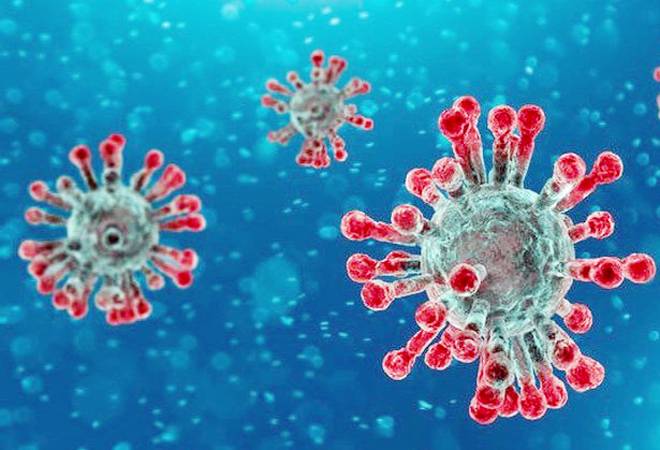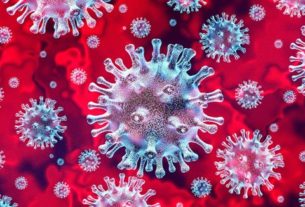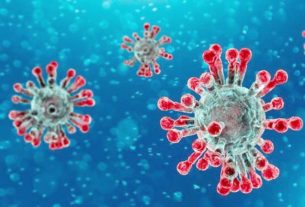From Our Bureau
21st April 2020
The Corona Virus (CPVID-19) pandemic situation continued to remain grim globally, with the confirmed cases across the world jumping to 23,97,217 and the death toll mounting to 1,62,956 in the 213 affected countries and territories, according to the latest update from the World Health Organization (WHO).
Globally, European region continued to be the worst-hit, with 11,87,184 confirmed cases and 1,06,342 deaths. American region came next with 8,93,119 confirmed cases and 42,686 deaths. Western Pacific region’s tally stood at 1,34,507 confirmed cases and 5,685 deaths. Eastern Mediterranean region reported 1,34,470 confirmed cases and 6,185 deaths. South-East Asia region recorded 31,570 confirmed cases and 1,341 deaths and African region witnessed 15,555 confirmed cases and 704 deaths. WHO Risk Assessment at global level remained very high.
No new country/territory/area reported cases of COVID-19 in the past 24 hours. WHO Director-General, Dr Tedros Adhanom Ghebreyesus, in his media briefing, thanked health ministers from the G20 countries for their support, as well as the support received from the G77 (that comprises 135 countries) and The Non-Aligned Movement (that comprises over 130 countries). He reiterated that WHO is committed to supporting all countries to save lives.
WHO and Global Citizen’s “One World, Together at Home” concert in collaboration with Lady Gaga has been a great success and show of global friendship and solidarity. It has also raised US$55 million for WHO’s Solidarity Response Fund, which will be used to support countries to prevent, detect, and respond to the pandemic.
As of 21 April, over 100 countries have joined the Solidarity Trial to evaluate therapeutics for COVID-19. The trial will compare four treatment options against local standard of care, to assess their relative effectiveness against COVID-19.
WHO has published ‘International Guidelines for Certification and Classification (Coding) of COVID-19 as Cause of Death’. During a virtual meeting convened by WHO, national regulatory authorities and national ethics committees across Africa agreed to combine their expertise to expedite clinical trial reviews and approvals. WHO continues to secure vital supply chains, set-up logistical hubs, and deliver critical supplies.
WHO leads UN collaboration to secure vital supplies for COVID-19 response. The COVID-19 Supply Chain System (CSCS), managed by the Supply Chain Task Force, is a collaborative effort across UN and non-UN actors. WHO leads the prioritisation and allocation of medical supplies and equipment, while the World Food Programme (WFP) acts as logistics lead to direct shipment and distribution of goods to governments or UN country offices.
The CSCS will identify, certify, source, allocate, direct and deliver essential medical supplies and equipment to where they are needed most during this acute phase of the COVID-19 pandemic. It will have eight global hubs and will deploy sixteen 747s and medium-sized cargo aircraft, as well as passenger planes for monthly shipments of personal protective equipment (PPE), respirators, lab equipment, oxygen, and medical and technical personnel.
WHO is securing commitments for millions of COVID-19 tests, masks, goggles and other PPE. WHO has established three buyers’ consortia – a PPE Consortium, a Diagnostics Consortium, and a Clinical Care Consortium – to address global market shortages in critical supplies required for the global COVID-19 response. Each consortium is working to ensure that some critical supplies are reserved to meet the requests of countries most in need, especially low- to medium income countries with severely limited resources.
The Clinton Health Access Initiative has helped the Diagnostics Consortium negotiate with manufacturers to secure commitments for 10 million tests over the next 16 weeks. Market demand for clinical care equipment is estimated to be 20 times the historical demand, with oxygen concentrators unlikely to be available before September at the earliest.
WHO continues to work with private sector partners on procurement efforts to secure supplies of oxygen, consumables and accessories for oxygen therapy. WHO is also continuing to work to secure higher volumes of masks, gloves and other vital equipment to protect healthcare workers and vulnerable populations. (eom)



